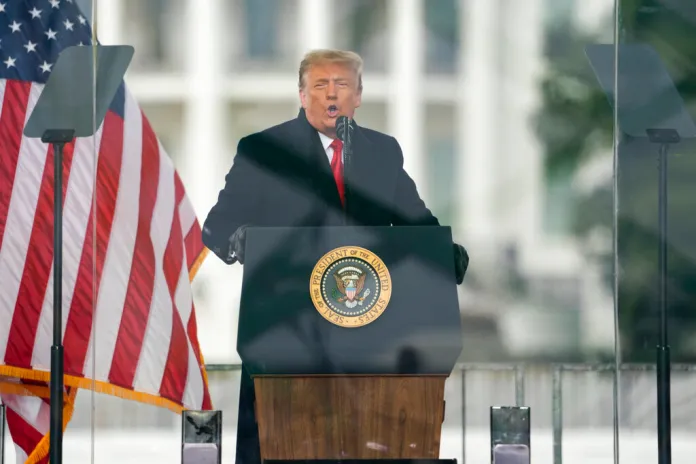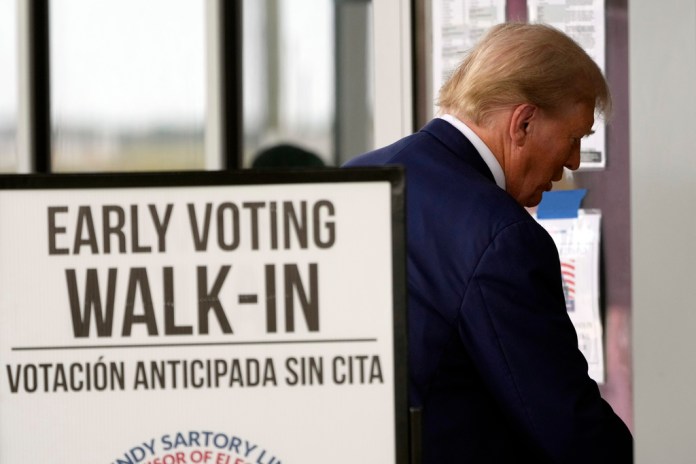US automakers are upset that Trump lowered tariffs on Europe and Japan
The article discusses U.S. automakers’ lukewarm response to President Donald Trump’s recent trade deals wiht Europe and Japan, which involve lowering tariffs on imported vehicles. While Trump’s agreements reduce European and Japanese auto tariffs to 15%, allowing more market access for American cars, U.S. automakers such as Ford and the United Auto Workers (UAW) union criticize the terms as insufficient. They argue the 15% tariff is too low to encourage foreign manufacturers to relocate production to the U.S., especially given cost advantages abroad and existing high tariffs on Mexico and Canada that raise costs for domestic producers. Additionally, experts doubt that the lowered trade barriers will significantly boost U.S. auto exports to Europe and Japan due to differences in consumer preferences, infrastructure, and driving norms. Despite these concerns, some supporters, including the Trump administration and groups like Auto Workers for trump, believe the policies will ultimately bring manufacturing jobs back to America and open foreign markets. while the deals create some new opportunities, U.S. automakers remain cautiously skeptical about their impact on the domestic industry and trade balance.
US automakers aren’t jazzed Trump lowered tariffs on Europe and Japan
President Donald Trump has talked for decades about exporting more autos to Europe and Japan, but car makers are skeptical that his new trade deals can deliver that result.
Trump’s new deal with the European Union includes a 15% tariff on cars entering the United States, but no tariffs on imports. Similarly, his agreement with Japan includes 15% tariffs on imports, while Trump says the country will finally open its doors to American goods.
However, U.S. automakers are less than pleased with the terms, saying that the 15% that foreign makers will pay does not make up for their lower labor costs and weaker currencies, and that the remaining 25% tariffs on Mexico and 35% on Canada can actually make domestically manufactured cars more expensive than foreign brands.
“15% tariffs on vehicles is simply not a strong enough incentive for competitors to move production to the U.S.,” Ford Motor Co. said when the deal was announced. “Japan and South Korea have real advantages in labor costs, materials, and currency. Meanwhile, Ford is facing billions due to multiple tariffs on auto parts, steel, aluminum, and more that increase our costs of building in America.”
The United Auto Workers union also criticized the deals as insufficient to help its workers, who were key to Trump’s 2016 and 2024 election victories.
“The UAW has long supported managed fair trade, a policy approach that uses strategic tariffs to send a clear, consistent message: the race to the bottom is over,” the labor group said. “U.S. trade policy should push automakers to build in America, with skilled, union labor. A flat 15% tariff doesn’t accomplish that.”
UAW warned that companies could circumvent the tariffs by shifting assembly to other countries, saying that American workers “deserve more than empty promises.”
Like other industries, the auto sector has been on a trade roller coaster since Trump took office in January. U.S. import tariffs had been low for decades, and Trump was particularly irked that Europe’s auto tariff was four times higher than America’s.
But Trump’s recent trade deals actually lower EU and Japanese tariffs from the 25% rate set this spring, leaving Ford and GM at a relative disadvantage.
Both companies now hope that their still-pending deals with Canada and Mexico will improve their situation once they are finalized, as they source many of their parts and raw materials from those two countries.
“Over time, we remain confident that our total tariff expense will come down as bilateral trade deals emerge and our sourcing and production adjustments are implemented,” GM CFO Paul Jacobson said on an earnings call.
Ford said it is committed to working with the Trump administration to “get this right,” saying its goals are aligned with those of the White House.
“We have had very positive engagement, but we have urgent work to do to protect our domestic industry,” the company said.
A less-discussed topic is whether the deals will open up Europe and Japan for a larger export business. American cars remain a rarity in both places, particularly Japan, which Trump has complained about since the 1980s.
“We let Japan come in and dump everything right into our markets,” Trump told Oprah in 1988. “It’s not free trade. If you ever go to Japan right now and try to sell something — forget about it, Oprah, just forget about it. It’s almost impossible. They don’t have laws against it, they just make it impossible.”
The day Trump launched his 2016 presidential campaign, he made a similar complaint.
“When was the last time you saw a Chevrolet in Japan?” Trump said. “It doesn’t exist, folks.”
While that’s not exactly true, GM typically sells fewer than 1,000 vehicles a year in Japan, while Ford pulled out of the market completely almost 10 years ago.
However, most observers doubt that lowering trade barriers will greatly affect U.S. auto exports.
“The Detroit big three don’t build the kind of cars that sell well there,” said Ian Fletcher, co-author of “Industrial Policy for the United States.” “If you’ve ever been to Japan or Europe, you know that the automobiles are very different.”
Fletcher explained that gas is much more expensive in most of Europe, and a host of other factors make the transition difficult. Streets are narrower, mass transit is better, cars tend to be smaller, and in Japan, cars travel on the left side of the road, creating another obstacle.
Those factors help explain why most of the discussion is about the domestic industry.
Not everyone says the deals struck so far will be bad for auto workers.
Brian Pannebecker, who founded the group Auto Workers for Trump, has appeared on stage with the president multiple times, including at the White House “Liberation Day” announcement. He said Trump’s trade policy is all about bringing manufacturing jobs back to the United States, including his hometown of Macomb County, Michigan.
So far, he’s convinced Trump’s policies will deliver for the U.S. autoworker.
“Yes 100%,” Pannebecker told the Washington Examiner. “The tariffs are going to force them to build their plants here. It’s going to force the domestic companies to bring those offshore production facilities back. And then it’s going to open up the markets, in countries like Germany and Japan, and South Korea, who do have auto industries of their own. It’s going to force them to open up their countries and their markets to our products, our automobiles.”
White House will construct 90,000-square-foot Trump ballroom
He said autoworkers that he organized and voted for Trump have been pleased with this tariff plan, “because he’s doing exactly what he said he would do.”
The White House itself makes the same point, promising the best is yet to come.
“No president has taken a greater interest in restoring American auto industry dominance than President Trump, and the administration is in constant touch with the auto industry to meet this objective,” spokesman Kush Desai said. “President Trump’s trade agenda has already delivered unprecedented access for American automakers to the Japanese and European markets, enabling cars to be exported directly from Detroit assembly lines to showrooms in Tokyo and Frankfurt.”
" Conservative News Daily does not always share or support the views and opinions expressed here; they are just those of the writer."




